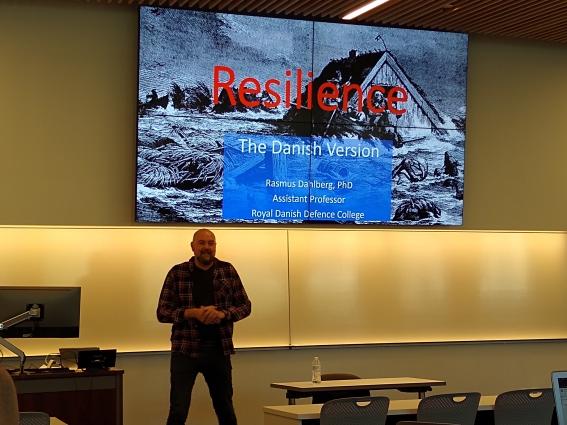“Disaster Historian” Offers Danish Resilience Insights
February 25, 2020


Speaking at an event organized by the UMass Amherst chapter of INFORMS (Institute for Operations Research and the Management Sciences), Dalhberg told participants that the country has very few natural hazards—no seismic zones or volcanic activity—although its coastlines are vulnerable to flood risks, particularly as sea levels rise and substantial rainstorms become more common. He says that disaster management experts like himself believe that “there are no natural disasters. All disasters are manmade.”
Dahlberg, who teaches and researches civil-military relations, military history, and war theory, explained how the concept of resilience is being embraced on a national scale in Denmark to develop systems that will help the country deal with unpredictable situations.
“We have to think of communities as organisms more than clockwork,” Dahlberg said. “We need to make the effort to adapt and learn for the future.”
Dahlberg was introduced by the INFORMS chapter's faculty advisor, Anna Nagurney, and its president, Isenberg Management Science Phd student Mojtaba Salarpour.